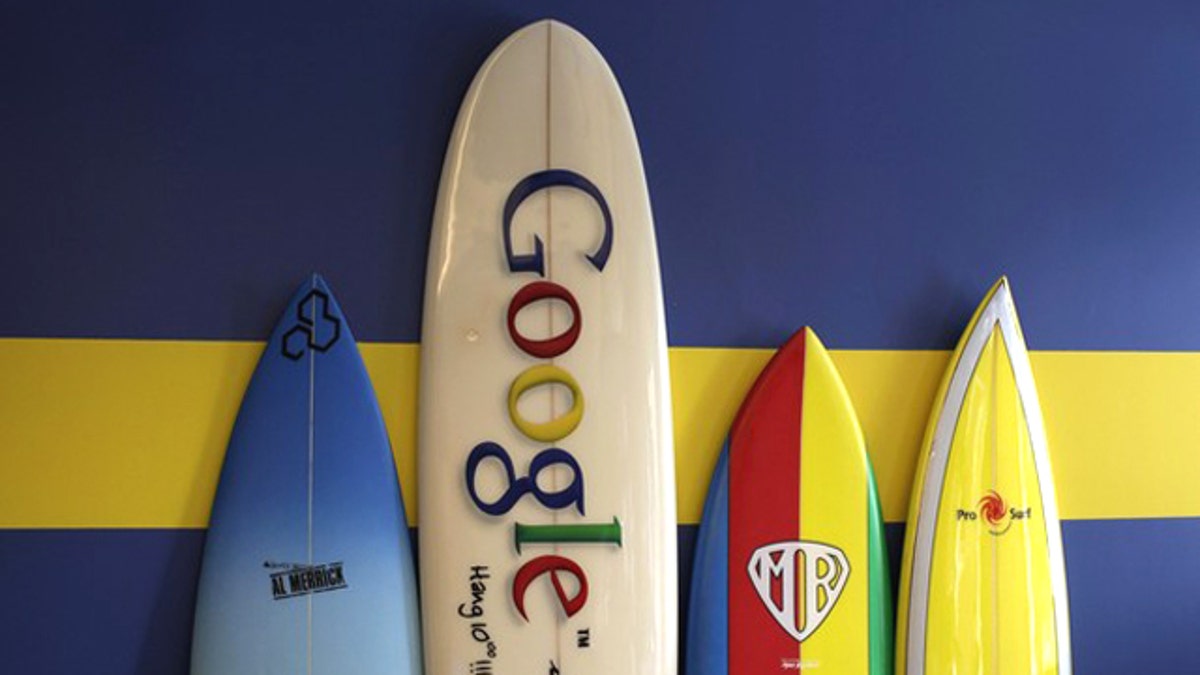
Surfboards lean against a wall at the Google office in Santa Monica, California. (REUTERS/Lucy Nicholson)
BRUSSELS – The European Union has given Google "a matter of weeks" to propose remedies to antitrust concerns arising from its alleged dominant position in the online search market.
European antitrust chief Joaquin Almunia said that after a one-and-a-half-year investigation following complaints from Google's rivals, the EU had pinpointed four areas of concern centering how the Internet giant deals with its search results, how content is used, how advertising is run on its search engine and how advertisers are restricted from using rival search engines.
Alumina called on Google to propose the solutions to the concerns quickly or face formal antitrust investigation and charges. At the end of a formal EU investigation, Google could theoretically face a fine of up to 10 percent of its annual revenue.
"Restoring competition swiftly to the benefit of users at an early stage is always preferable to lengthy proceedings," Almunia said.
[pullquote]
Google, the world's most popular search engine, also faces a similar antitrust investigation by the Federal Trade Commission in the United States.
Al Verney, a spokesman for Google, said the online company disagreed with the EU's conclusions but added that "we're happy to discuss any concerns they might have." Both sides have been in close contact over the past months to try to find a way out of the standoff.
Almunia noted Google had committed to discuss the antitrust issues and avoid legal action from the EU. "This is why I am today giving Google an opportunity to offer remedies to address the concerns," he told reporters.
At the start of the probe in November 2010, three competitors, one owned by Microsoft, said that links to their services appeared too low on Google's general search results. They also noted that when Google offers similar services, such as online price comparison, it put its own links higher on the sponsored search results, the ones companies have to pay for.
The EU Commission's investigation also assessed whether Google prevented advertising partners from placing ads from Google's competitors on their sites.
On Monday, Almunia said that Google displays some links to its own vertical search services differently than it does for competitors. "We are concerned that this may result in preferential treatment."
He also said Google might be picking up content from competitors and using it without prior authorization. "We are worried that this could reduce competitors' incentives to invest."
ICOMP, an Internet business group which is sponsored by Microsoft, said it welcomed Almunia's statements.
"It is vital that the terms of any agreed settlement include measures to quickly redress the harm caused to European businesses and consumers and are sufficiently robust to ensure that such harm is not repeated," said ICOMP counsel David Wood. "We trust that this will prove to be the case and a competitive online market place will be restored."
